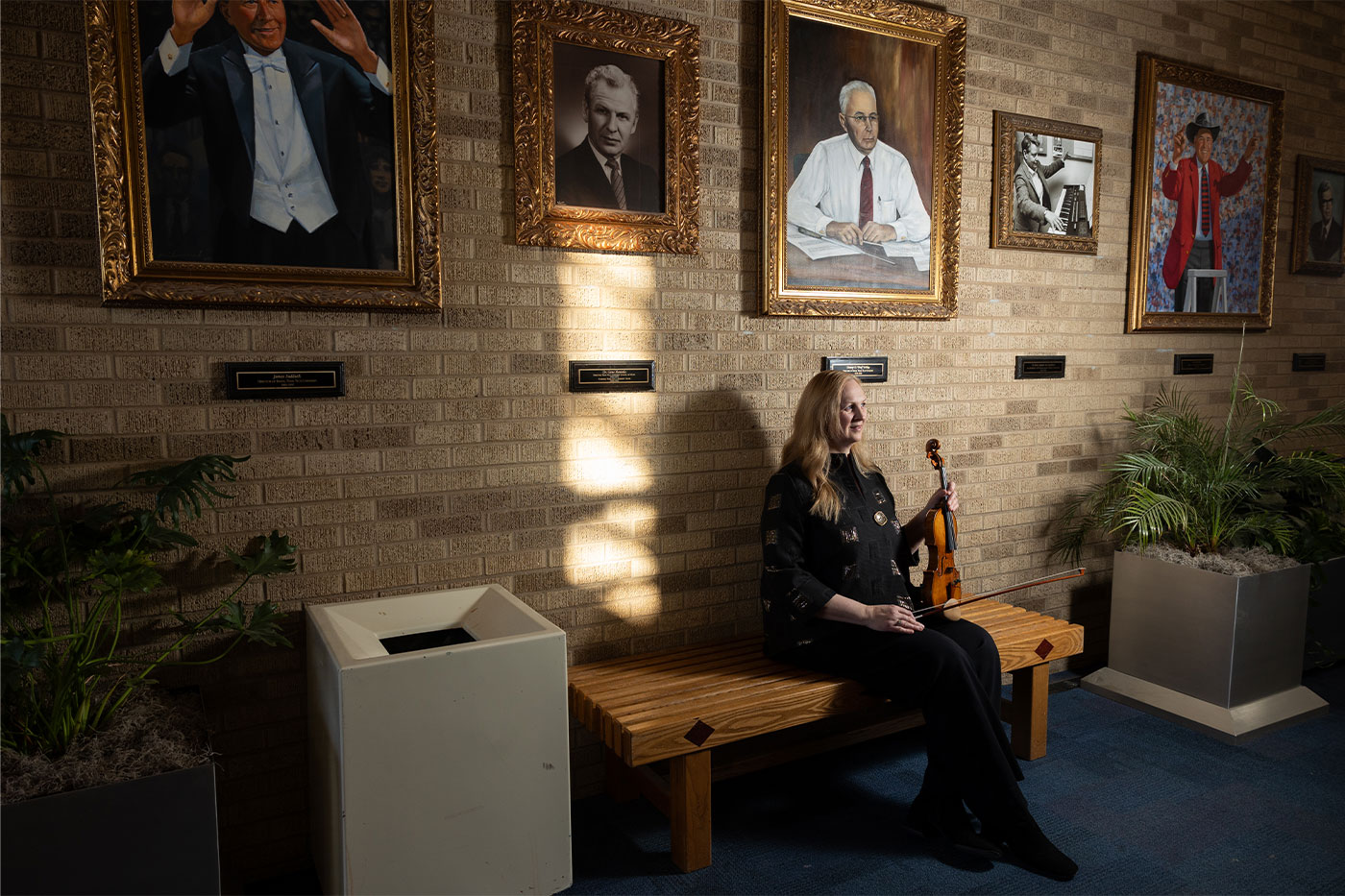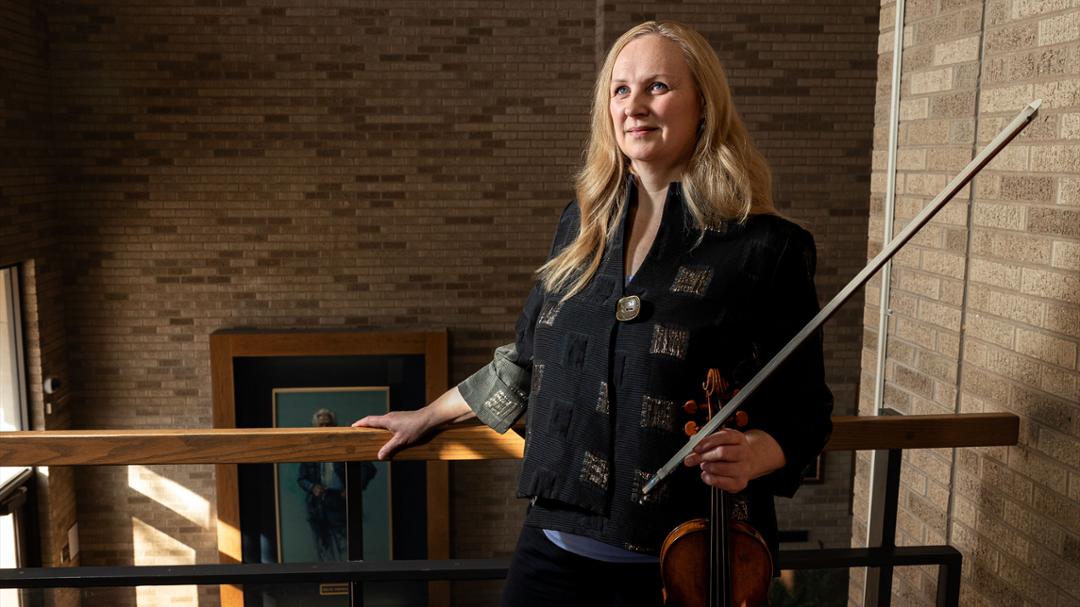Annie Chalex Boyle has been named to YWCA of Lubbock’s 2025 Women of Excellence list, not only for her teaching and performance career, but also because of her presence – both onstage and off.
Warm Up
Professor of Violin Annie Chalex Boyle holds her studio class each Thursday after lunch. Students finish snacks and sandwiches as they unpack their instruments. The sound of strings tuning rings down the hallway of Texas Tech University’s School of Music.
There is chatter, laughter and a feverish practicing of excerpts about to be played for their professor and peers.
This hour each week is a chance for Chalex Boyle to work with all her students. Not every student plays each week, but everyone participates. For those not performing, they listen attentively and offer encouragement and constructive critique. It’s an opportunity for every student to become a better musician whether they’re holding an instrument or not.
As graduate student Radman Rasti finishes movement one and two of Tartini’s “Devil’s Trill Sonata,” Chalex Boyle applauds and then pivots to ask the class what’s missing.
“The sound was a bit flat,” answers one student.
“How might he fix that?” Chalex Boyle challenges.
The students agree that a different vibrato could open up Rasti’s sound. He resets his bow and tries the beginning of the sonata again with a looser left hand, moving up and down the neck of the violin, summoning a depth of expression that was not there a few moments prior.
“What has happened to the sound?” Chalex Boyle asks.
“The notes are popping out now,” offers one student.
Another says, “Everything sounds loosened up.”
“But how does that work? Technically speaking, how has he achieved a looser sound?” Chalex Boyle pushes, holding eye contact with her students.
They look at one another, wondering if someone will find the answer their professor is hunting. But it’s clear this is a teaching moment.
Chalex Boyle says, “When you loosen your wrist, you can manipulate the overtones of your sound.”
Heads begin to nod, and various “Oh’s” echo.
Rasti plays the first four notes of the sonata over and over and over, trying different combinations of vibrato and bowing, until Chalex Boyle yells out, “Aha! Did you hear that?”
A small smile creeps along Rasti’s face – it’s clear he did.
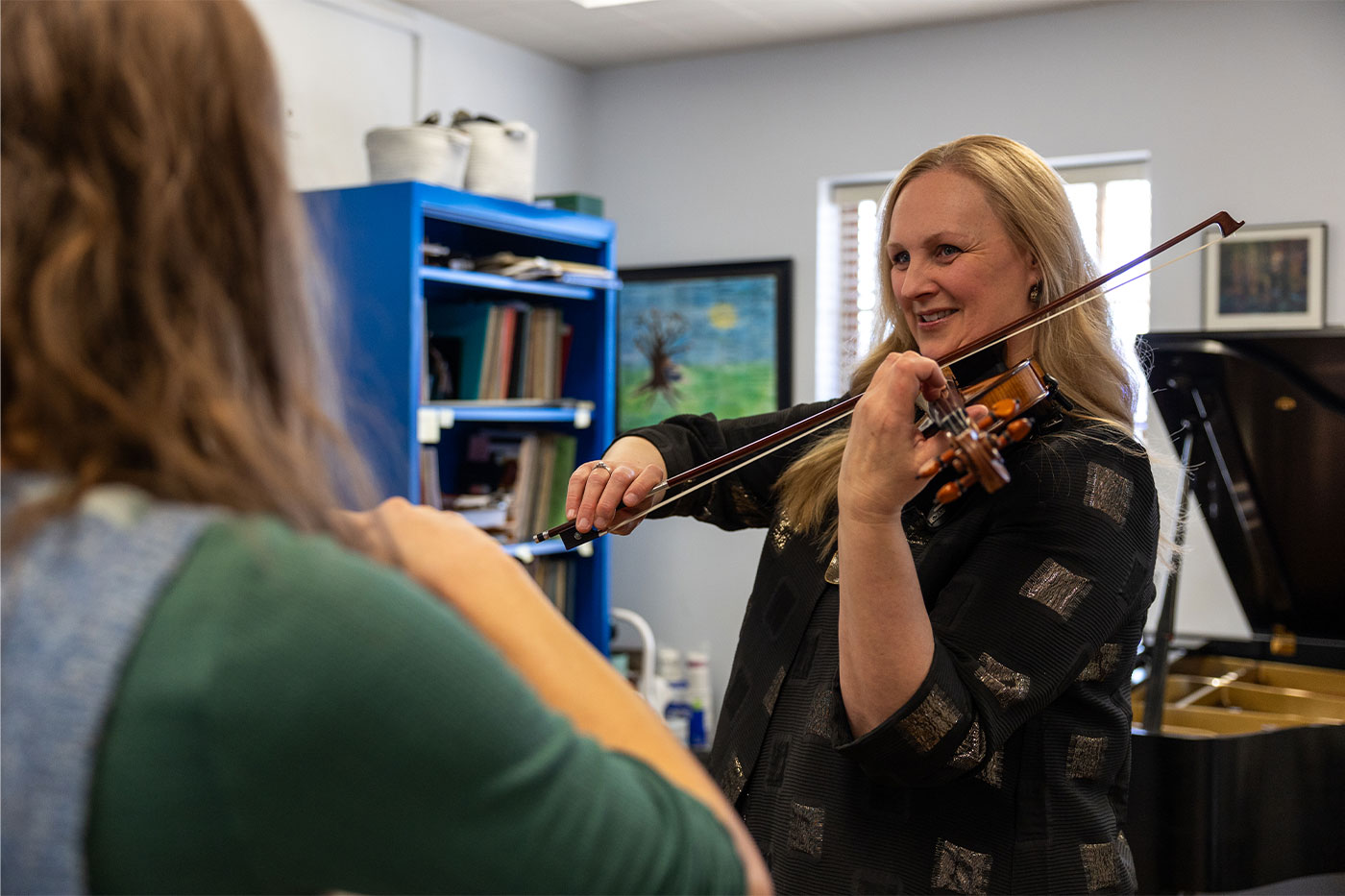
Moments like these, and countless others, are what led to Chalex Boyle being selected as one of the YWCA of Lubbock’s 2025 Women of Excellence. It’s a list that a select few Texas Tech faculty members are named to most years, along with other professionals in the Lubbock community.
Movement One
“It is a mistake to think that the practice of my art has become easy to me.” – Wolfgang Amadeus Mozart
When Chalex Boyle picks up her violin, she produces a sound that’s sincere, scintillating and spritely. One gets the feeling she does everything on purpose – both on stage and off.
But she didn’t start with this kind of sound.
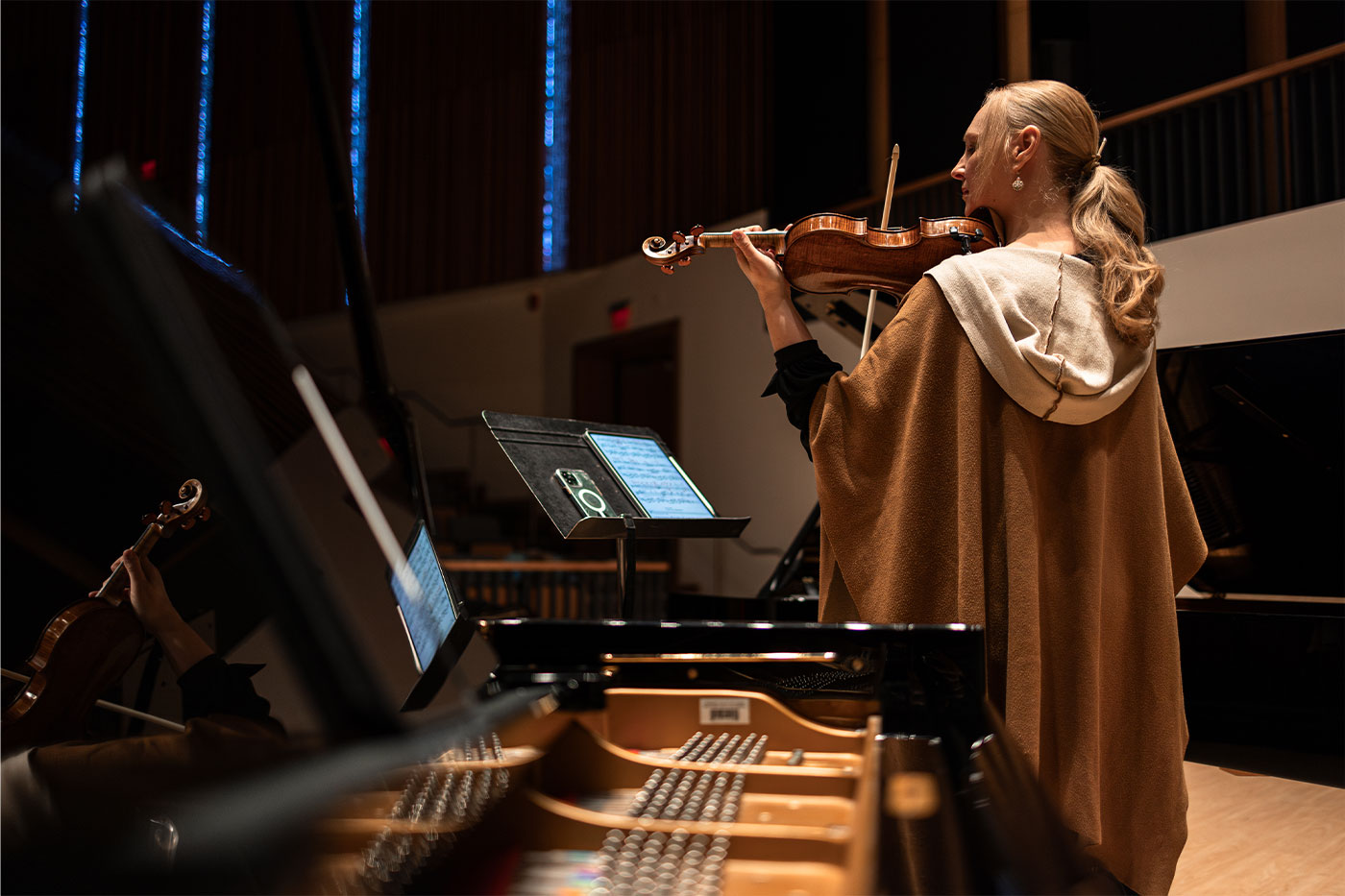
Like many young children, Chalex Boyle first picked up a violin at the encouragement of her parents. There was a string program at the elementary school she attended in Arlington Heights, Illinois.
“I followed rules; I was an obedient kid,” Chalex Boyle recalls. “I practiced every day and because of that, I got good quickly.”
The private teacher Chalex Boyle studied under noticed the young musician had strong potential. After a few years, she suggested to Chalex Boyle’s parents that their daughter play for the renowned husband-wife teaching team, Roland and Almita Vamos.
The Vamoses both studied at The Juilliard School and had gone on to teach at Oberlin Conservatory of Music, the University of Minnesota, Northwestern and Roosevelt University. Chalex Boyle auditioned for them in sixth grade and was taken on as a student. For the young violinist that meant every moment she was not at school, she was in a lesson or practicing.
“I got permission to leave school early for lessons on Friday, and those would go through the end of Saturday,” Chalex Boyle says.
While many kids would worry about missing social events on the weekends, Chalex Boyle made peace early with being the “weird violin girl,” she says.
She also admits the reason she avoided burn out wasn’t any supernatural stamina, but because she broke her wrists six times before graduating high school.
“I broke them differently each time,” she recalls, confessing to being a bit accident prone because of her height.
“I was almost 6-foot by eighth grade,” she says.
Anytime she fell or landed the wrong way on her hand, it would cause hairline fractures. On the weekends she couldn’t practice, she’d go to the movies or hang out at a friend’s house.
“I think it was a blessing in disguise because it allowed me to pace myself,” Chalex Boyle says.
When it came time to attend college, she had a choice. She was accepted at both the University of Southern California (USC) and Juilliard. She traveled and took a private lesson with both teachers. She says she immediately clicked with the professor at USC, Robert Lipsett.
“I remember he walked around me while I was playing all these different things: double stops, scales, arpeggios, all kinds of pieces, for almost three hours,” Chalex Boyle remembers. “He asked me tons of questions and the things he said were things I’d never heard before. They were the biggest light bulbs going off in my head.
“He figured me out technically.”
She says Lipsett was a patient and thorough teacher and she grew tremendously under his guidance. While Juilliard had been tempting, she was promised more time in lessons at USC. With Lipsett, she had two hours of private lessons a week versus the one private lesson a month she would have received on the East Coast.
After graduating from USC, Chalex Boyle took gigs all around Los Angeles. She worked on film recordings and played with the Los Angeles Chamber Orchestra, Los Angeles Opera Orchestra, American Sinfonietta and the Santa Barbara Chamber Orchestra.
In 1993, one of those ensembles turned into steady work. She joined the Southwest String Quartet and at the time, was by far their youngest member.
“The first violinist didn’t want an equal,” she says. “He wanted someone to do his bowings and imitate him. I was the perfect person for that.”
Annie adored working with him. The violinist had four decades of experience that she was craving to learn from. Playing with established names offered her the chance to work with famous living composers such as Pulitzer Prize winner Elliot Carter and the British Modernist Oliver Knussen. While others were cutting their teeth in symphonic seas of faces, Chalex Boyle was making personalized connections.
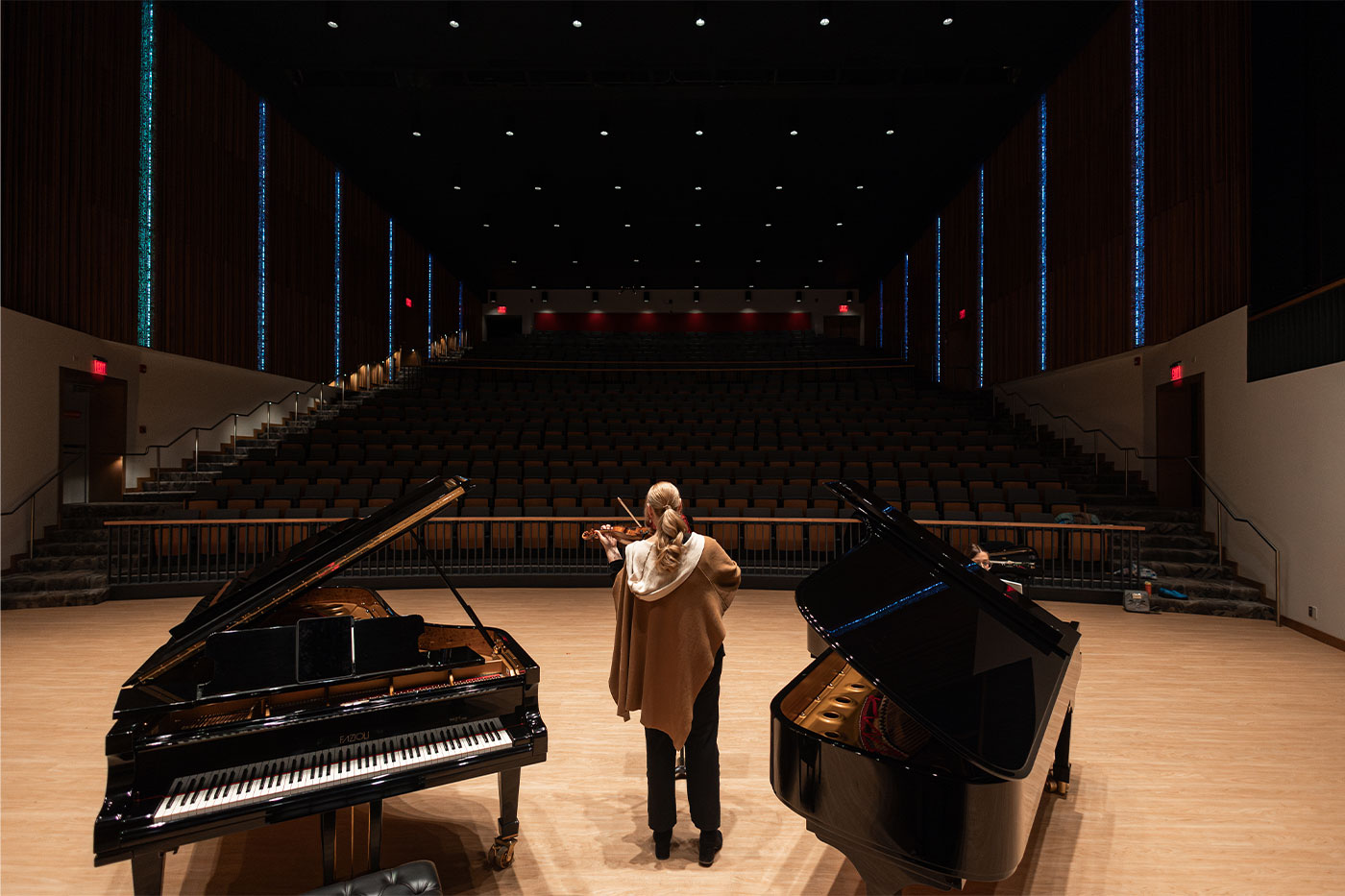
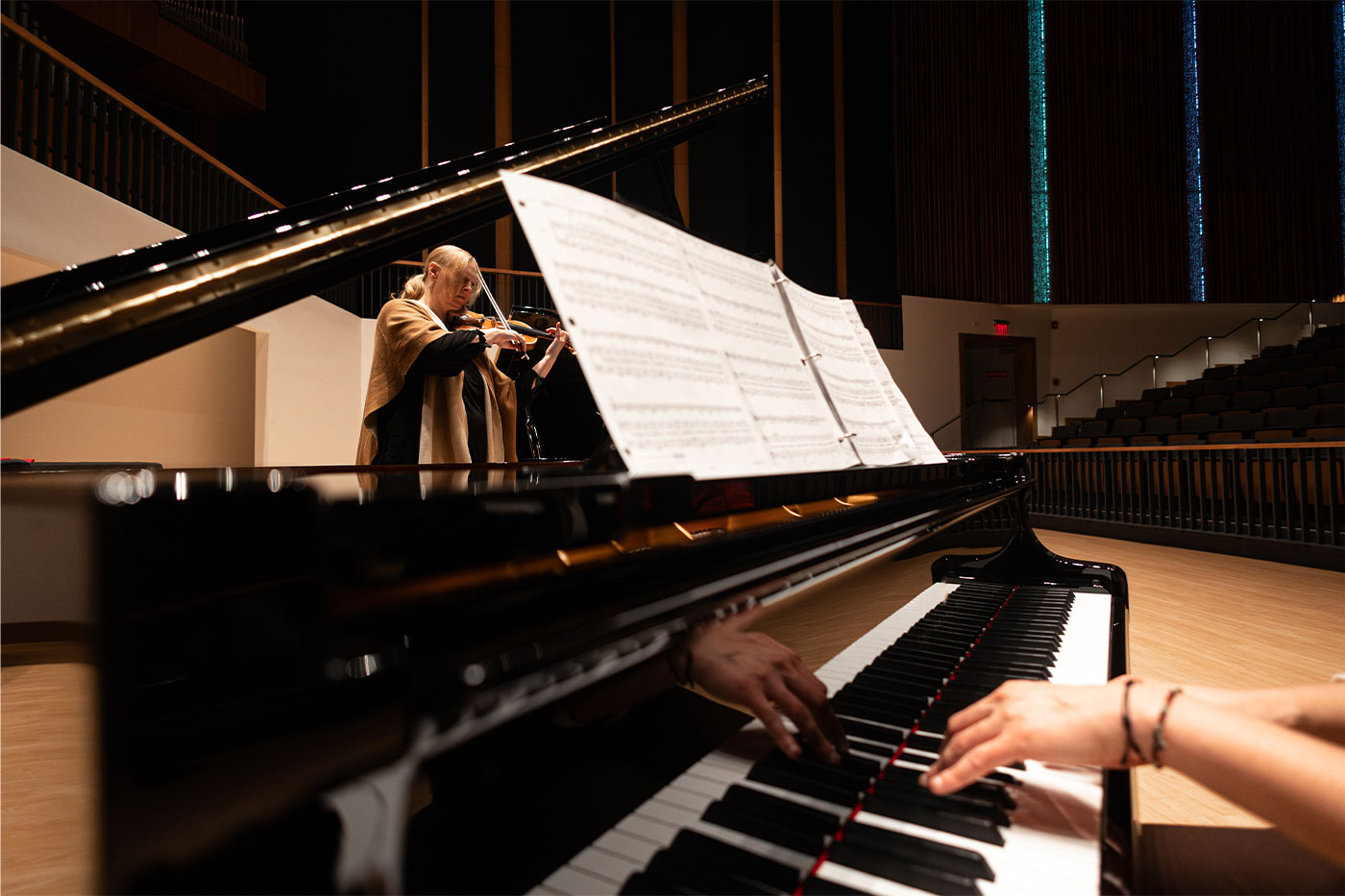
After a few years of playing with the quartet, Chalex Boyle realized she had a deep love for playing in small ensembles. Lipsett told her there was only one thing to do then – go to Juilliard.
Robert Mann was the first violinist of the Juilliard String Quartet at the time, and he was the person to emulate if you wanted a career in quartet playing. While she loved the Southwest String Quartet, Chalex Boyle hoped she might make the leap from second to first violin.
She moved to New York City and found it to be incredibly different from Los Angeles. Like the city, Juilliard also had a pulsing, chaotic energy about it. There was a certain competitiveness sewn into the school’s social fabric. While not unexpected, Chalex Boyle found it to be, in her words, a pressure cooker.
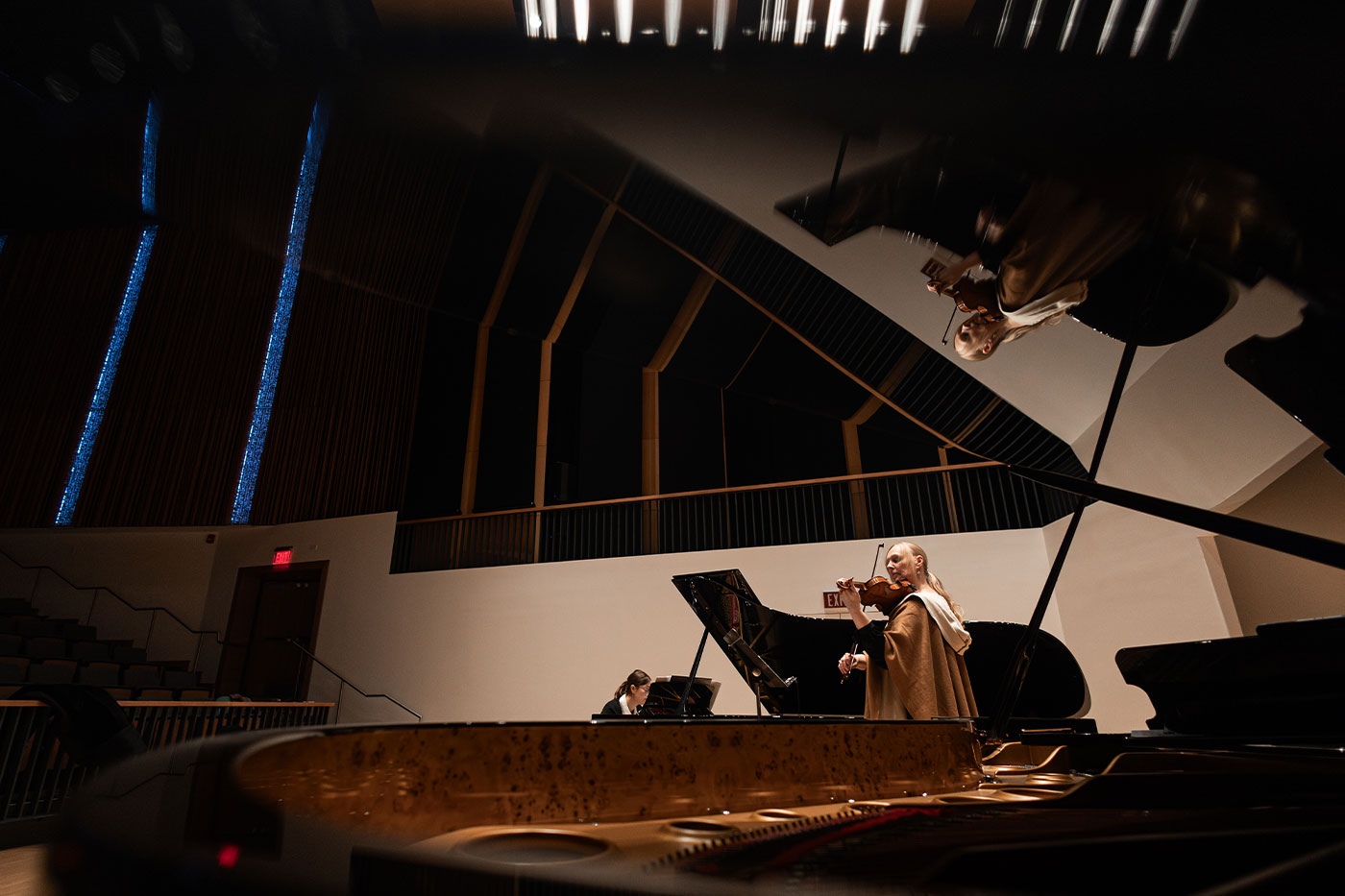
“I never felt good enough,” she admits. “That was something I had to overcome psychologically every day. But in the end, it made me stronger.”
It’s hard to believe this master of music ever felt insecure, as she sits tall in her office surrounded by posters for dozens of concerts she’s played around the world.
But she’s quick to point out that each chapter of her journey has given her something she draws upon daily. And while Juilliard was a challenge, she says it’s not comparable to what students face today.
Movement Two
“Nothing primes inspiration more than necessity.” – Gioachino Rossini
Chalex Boyle’s students pack up their instruments at the conclusion of her studio class. After giving one another notes for further practice, they clean their strings, loosen bow hair and gently lay satin cloths over violins before shutting their cases.
Asher Rove is one of the younger members of the studio. He’s in his second year at Texas Tech, but he’s been playing violin for 11 years.
Asher met Chalex Boyle through his teacher back in Costa Rica.
His teacher, Grace Marin, who is now a doctoral student in Chalex Boyle’s studio, says the path to higher education for Asher was not a simple one. He didn’t have many resources, but he had a deep love for music. Chalex Boyle recognized that passion and walked Asher every step of the way through the endless paperwork and applications needed for acceptance, international student status and scholarships.
C.J. Goodyear said she wouldn’t be at Texas Tech right now if it wasn’t for Chalex Boyle helping her secure funding to cover her tuition.
“I graduated debt-free with my undergraduate degree,” Goodyear says.
It’s a position that will set her up to prioritize her artistry in the years to come. Goodyear is now a music performance student in the Graduate School at Texas Tech. She’s still hustling and picking up gigs whenever she can, but she can see a secure future for herself after graduation.
This struggle is by no means unique to Texas Tech students. Many young musicians with great potential face financial burdens before elevating their career to a place of comfort.
Chalex Boyle recognizes it’s no longer enough to just teach great musicianship, but that students need guidance and encouragement in all areas of life. From finances to mental health to building a personal brand.
“I have students who work two or three jobs, on top of classes,” she says. “That’s how much they believe in what they’re doing.”
Chalex Boyle has encouraged many of her students to audition for the Lubbock Symphony Orchestra. The contract, if they earn it, offers extra income and provides exceptional experience with a world class symphony – one where Chalex Boyle serves as concertmaster.
In 2024, students joined her in concert with cellist Yo-Yo Ma. The Grammy Award-winning musician played Dvorak’s “Cello Concerto in B Minor,” and students posed for photos with the artist after dress rehearsal.
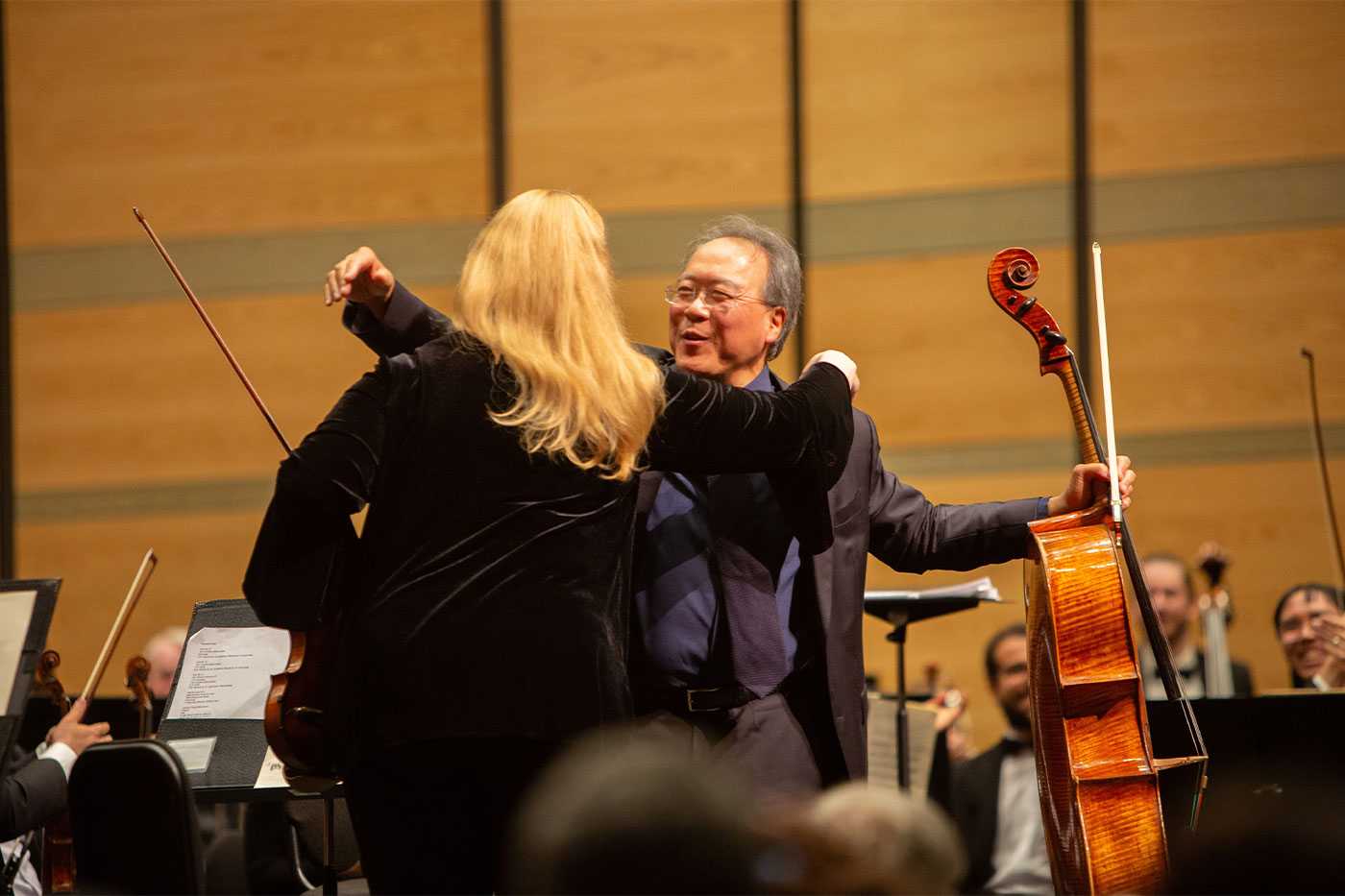
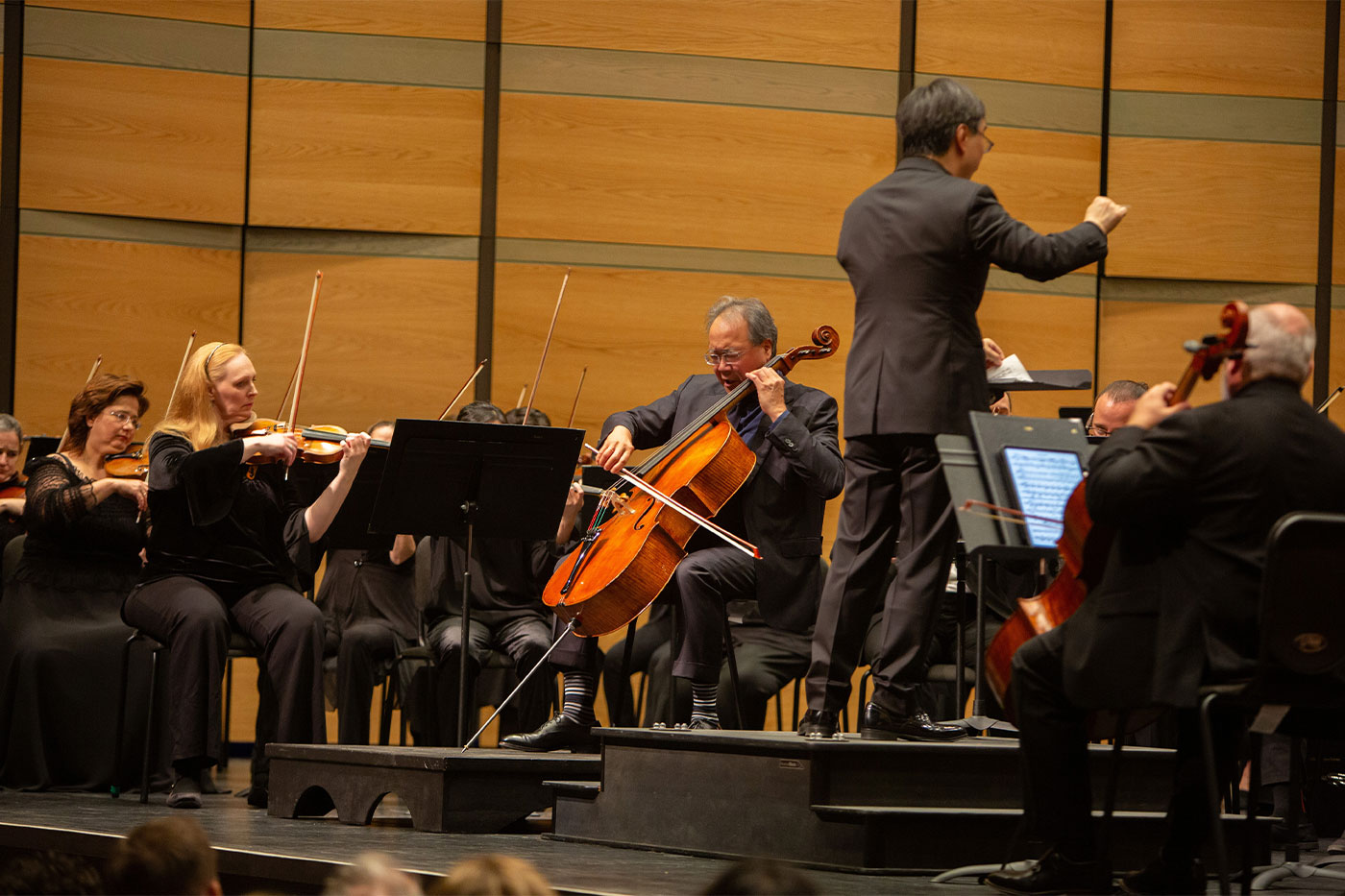
“Annie is the greatest violin pedagogue, colleague and friend,” says David Cho, conductor of the Lubbock Symphony Orchestra. “She is able to transform the sound of the violin section in an orchestra with a single word or encouraging gaze.”
Working with the Lubbock Symphony Orchestra has been one of the highlights of Chalex Boyle’s time in Lubbock. The reach it has within the Lubbock community is important to her.
“When we use everyone’s strengths together, it deepens our understanding of each other,” she says. “It continues making Lubbock a welcoming place for all of us to live and grow.”
This passion for reaching beyond the university campus and into the larger community is a quality Chalex Boyle is well known for among her peers. It’s why she was chosen for the 2025 Women of Excellence list, and it also reflects Texas Tech’s Outreach & Engagement initiatives. Chalex Boyle’s dedication to her students, peers and her community is an example of how faculty can weave a common thread between academic excellence and community engagement.
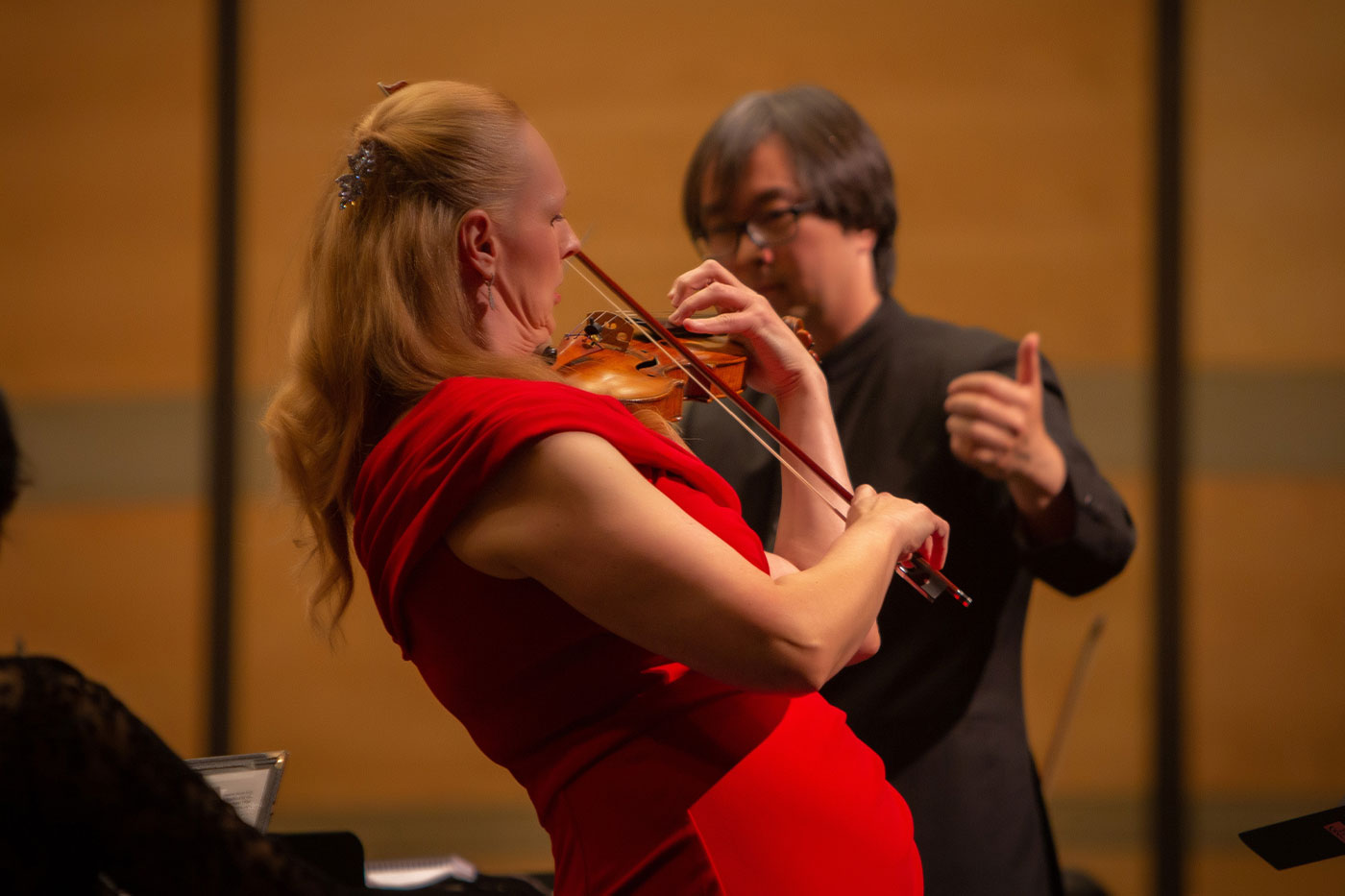
“We are honored and excited to shine a spotlight on Annie in the 2025 Women of Excellence celebration,” said Glenda Mathis, CEO of the YWCA of Lubbock. “Her talent and passion for her work are incredibly inspiring. Annie brings such joy, and being around her makes you want to be better. She is a delightful treasure for our community in so many ways.”
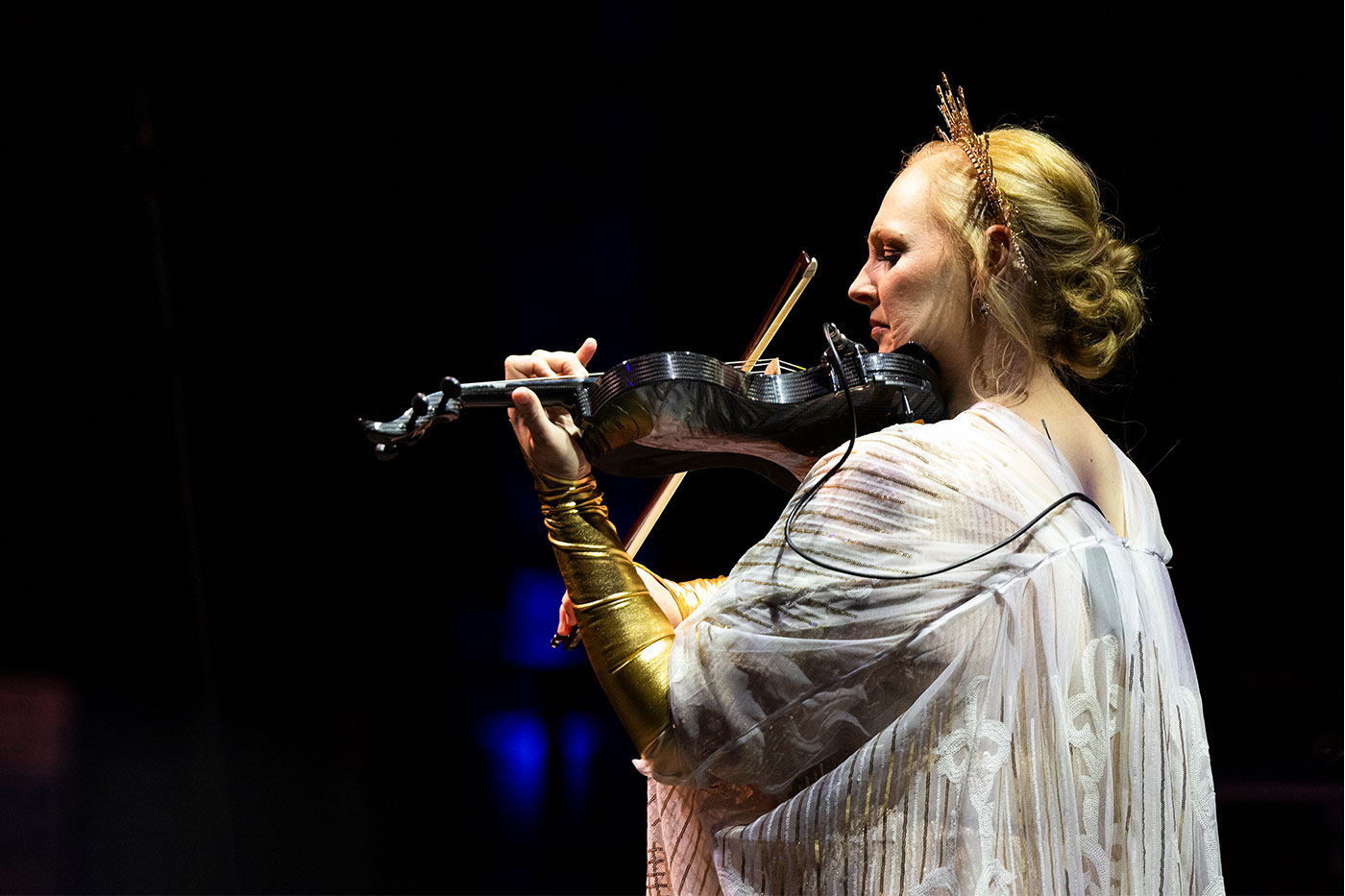
In addition to financial and community resources, Chalex Boyle is aware her students need other support, too. With Texas Tech’s recent emphasis on mental wellness, Chalex Boyle has made it clear to her students that perfection is not the goal – giving their absolute best is.
“She’s one of the most caring people I know,” Rasti says. “But that doesn’t mean she’s not demanding.”
She may not demand perfection, but Chalex Boyle can sniff out someone who hasn’t practiced like a bloodhound on the trail of a suspect. She expects her students to push themselves. To work hard and then work a little harder. But for those who give themselves to the process, she’s an unwavering supporter.
At the end of the day, Chalex Boyle loves playing violin. She wants her students to love it too, despite the hard days. She’s a believer in balance. Like in music, real life needs fast notes and slower notes, ambitious passages and playful refrains. Which is why in addition to her students’ formal recitals, she’s introduced new performances too.
“We recently did a ‘salon’ recital where we partnered with the piano studio and played pieces that might be heard in a 19th century, regency-era salon,” Goodyear says.
Chalex Boyle wanted the recital hall to feel like a salon, so students carried couches out of the studios and put them on stage for the audience to sit on. There were poetry readings and creative costumes in spades.
“There was very little pressure,” Goodyear recalls. “I think we all appreciate that Professor Boyle gives us opportunities to perform with zero stress, zero judgement. It’s just about the music and supporting each other.”
And there’s a method to the madness. By giving her students chances to flex their creative imagination, their artistry soars. It’s why she has former students who are now faculty at universities across the country and others who are playing in their own string quartets or with large symphonies.
Chalex Boyle’s students have travelled internationally to perform as soloists in Costa Rica, Italy, Mexico, Germany and Brazil. They’ve also been accepted into the Roundtop Festival-Institute, Brevard Music Festival, Alfredo De Saint Malo International Music Festival, Meadowmount School of Music and the Arianna String Quartet Festival.
Movement Three
“I should be sorry if I only entertained them. I wish to make them better.” – Georg Frideric Handel
So how did Chalex Boyle get to Texas Tech?
After Juilliard, she got her wish of becoming the first violinist of a quartet. She moved to Amarillo, Texas, and joined the Harrington String Quartet. A few years later, she met her husband while teaching at Interlochen Center for the Arts during the summer. The two became inseparable quickly, and Chalex Boyle had a decision to make.
She decided to step away from the quartet and move to Michigan so they could be married. During this time, she coached the Chicago Youth Symphony Orchestra and had their first daughter, Sage.
But in 2011, the couple was looking for a new adventure. Things were changing at the school her husband taught at, and they wanted to explore what else was out there – something they could start together. That’s when Chalex Boyle saw an opening for a visiting assistant professor of violin at Texas Tech.
One of the two violin professors had left for another university and there were too many students for the remaining professor to take on. There was no promise it would turn into something long term, but Chalex Boyle figured she’d try it for a year and see what happened.
On the day before classes started, she found out she was pregnant – with twins.
“I walked into the director’s office the next morning and I was sobbing,” she says. “I was embarrassed. I wanted to do well in this position, and now I wouldn’t even be able to finish the academic year.”
But the response she received from the School of Music faculty and leadership is part of why she’s still here today.
“No one was mad, no one was upset,” she recalls. “And my colleague, John Gilbert who I was here to help, ended up helping me.”
Gilbert offered to teach Chalex Boyle’s students while she was out.
“He just gave me a hug and said, ‘This is a beautiful thing, we’ll figure it out,’” she remembers. “I’ll forever be grateful to him for that.”
Chalex Boyle taught up until the last moment she could, almost finishing the academic year. In March of 2012, she and her husband welcomed twin girls, Grace and Mae. Today, the twins are in middle school and their eldest daughter, Sage, is in high school.
What was supposed to be a brief layover in Lubbock has become their home.
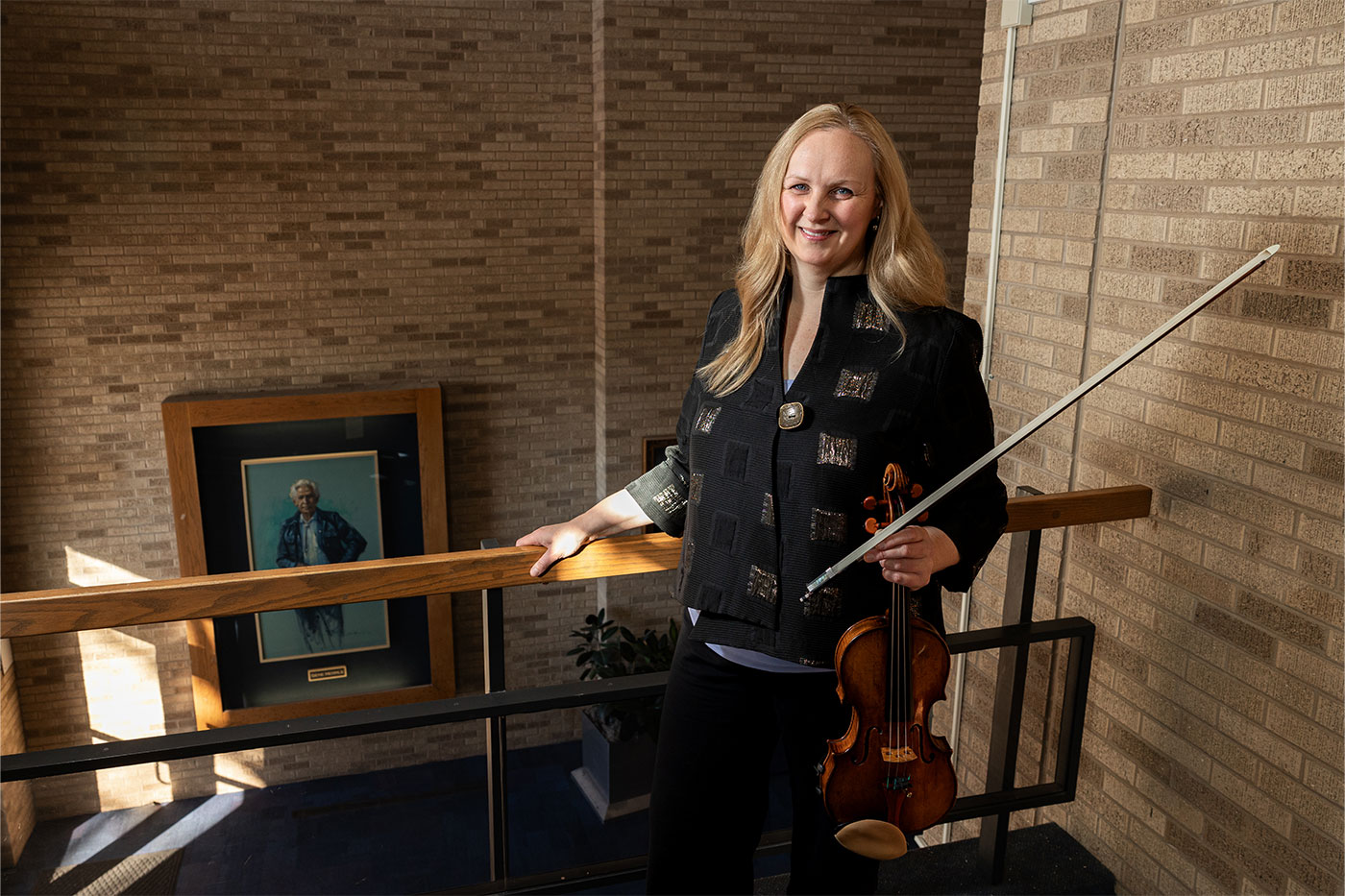
“I love Lubbock,” she beams. “The size of the community is perfect, and the university has been incredibly supportive.”
Chalex Boyle was just tenured as a professor of violin. Over the 14 years she’s been at Texas Tech, she has taught close to 100 students. These are not fleeting numbers on a list though. When she talks about her students, her eyes move upward for a moment as she composes herself. She recounts her students with precision, bringing them to life with sincere fondness.
“What I want for my students, more than anything, is for them to be honest with themselves and listen to their internal voice,” she says.
There’s no one right way to become a great musician, according to Chalex Boyle. And she carries a deep conviction that Texas Tech is the perfect place for students to explore who they want to become. After all, it’s done exactly that for her.
“The tenure process is much more than job security,” she says. “It gives you pillars to reach for; it gives you goals. I feel like a have a path.”
At the same time, she continues a performance career. This year alone she’s scheduled to play more than a dozen recitals and concerts from Lubbock to New York City to Italy. One of the reasons she loves working at Texas Tech is that it allows her to combine her passion for ensemble performance with her love for teaching.
While her earlier focus was on quartets, teaching has been a constant cadence in her life. To her, performance and teaching go hand-in-hand, answering each other like in a duet.
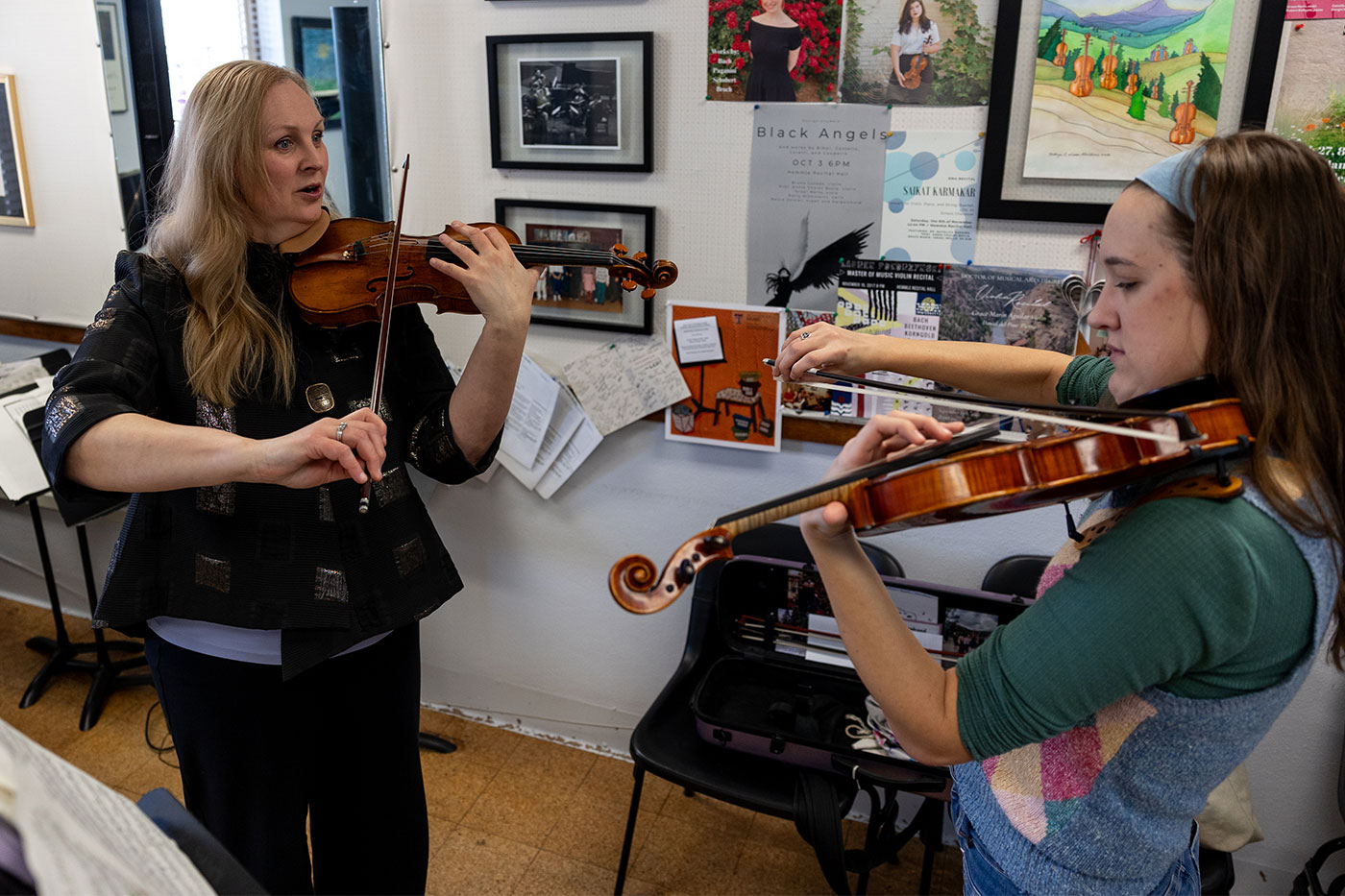
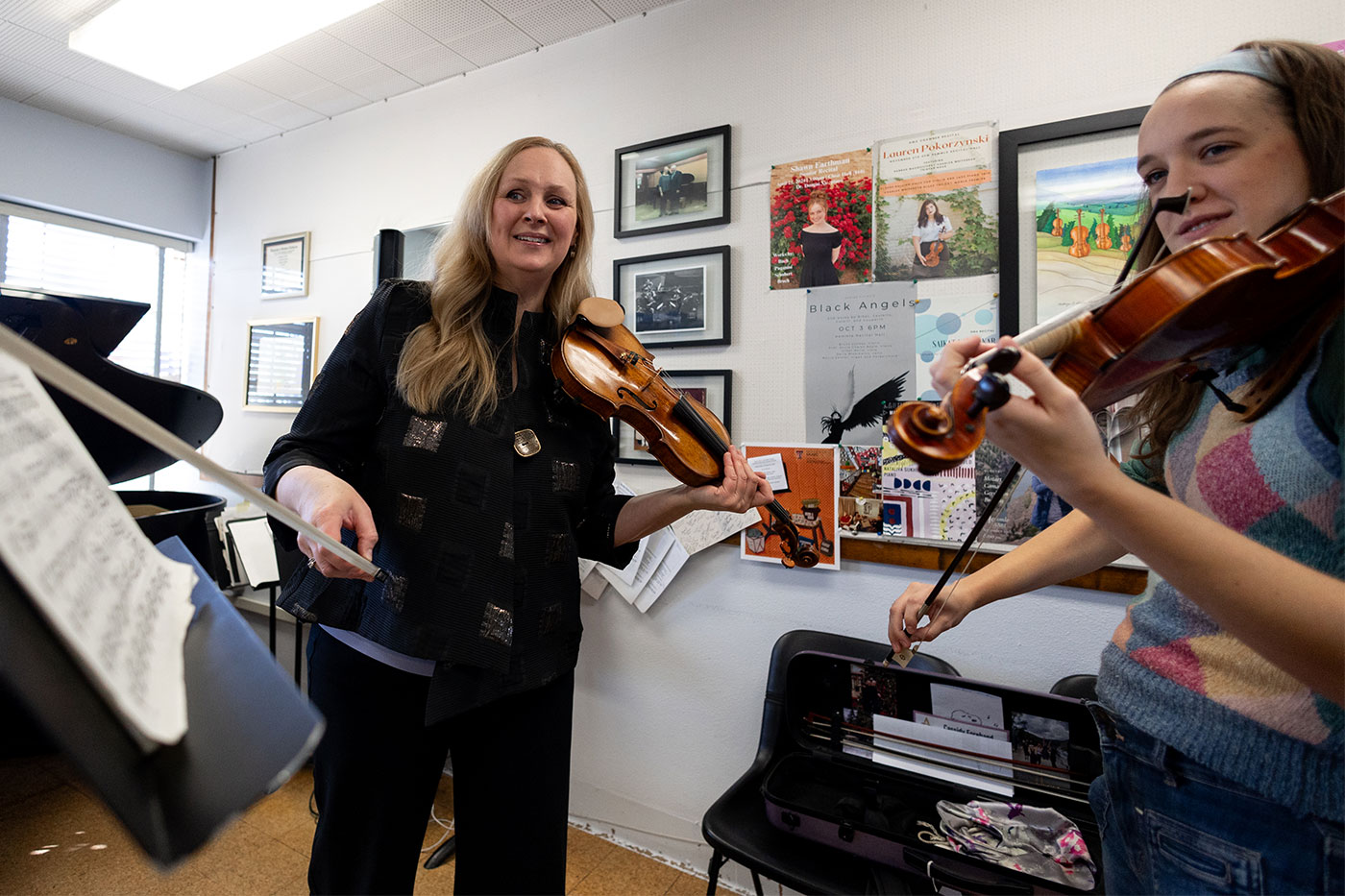
“All my students bring something different to the table,” she says. “I’m never bored.”
Chalex Boyle and her family have put down roots in West Texas and have no intention of going anywhere. When they first moved to Lubbock, she was impacted by the vastness, occasionally hearing Texas Tech referred to as “in the middle of nowhere.”
“People said it in a limiting way,” she says. “But that hasn’t been my experience at all. I feel limitless out here. Everyone I’ve worked with has proven that nothing is impossible. Here, there is endless support, endless dreams and endless possibilities.”
